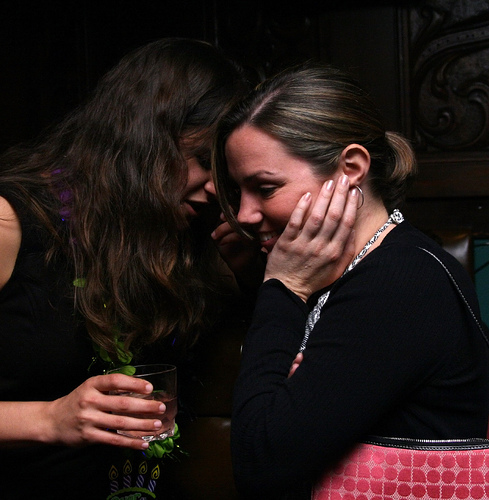In an age where technology forces communication to adapt at such a rapid pace, we as communicators also need to adapt to ensure our personal actions and our clients follow the law.
Last week at our monthly luncheon AWC Austin hosted local attorneys Jodi Cole and Jim Willi who each gave different, but equally informative, presentations on media and the law. Jodi examined social sharing while Jim educated attendees on patents, trademarks and copyright. Today we look at social sharing and ask, “How far is too far?”
Social Sharing: How Far is Too Far?
Do you ever question whether or not you’re allowed to have an opinion and express that opinion these days? According to Jodi Cole, before you answer that you need to decide if the person in subject is considered a private or a public figure. Who and what are you posting, Tweeting or commenting about?
Public persons usually trade their fame and recognition for less privacy, often in the arena of Social Media. As a US citizen you frequently have the right to speak your mind about a public figure through social networks. However, this general rule does not necessarily extend to the average citizen. Your favorite coffee barista is entitled to more privacy and can have an easier time pursuing a defamation claim if you harm their reputation through social media.
Now that we have technology and social media tools, it’s much harder to legally express our opinions without the risk of offending or hurting someone to the point of legal action. “Technology is moving too fast for the law. In many situations, it is up to the courts to interpret the application of the present law on a case by case basis. At least until the lawmakers decide how to address these issues,” said Cole.
Social media and sharing have caused many communicators and attorneys to take a step back and examine conversations. For example, if a person was upset about the recent Casey Anthony trial and decide to join a Facebook group or fan a page spreading hate messages, that could be used as evidence against them in court. Cole stressed that social media has opened up a whole new arena for media law cases. “Most lawsuits stem from the use of Twitter,” she explained. Twitter allows for consice communication, but ubnfortunately it also leads to misinterpretation and widespread defamation.
For those of us in the communication industry she advised us, “Always er on the side of caution, take responsibility for your action and think before you Tweet. “
Photo uploaded to Flickr Creative Commons by Shimonkey.
- Can I fire my client? - January 3, 2026
- How can I make time to work on new business development? - September 19, 2025
- How can I get the information I need out of a job interview? - August 14, 2025

